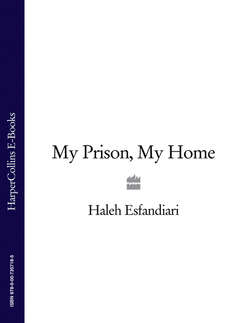Читать книгу My Prison, My Home - Haleh Esfandiari - Страница 20
AMERICA
ОглавлениеShaul left London for Princeton in late January, and I followed in July, after Haleh finished school. Princeton was a quiet university town, very different from Cambridge, Massachusetts. The Princeton campus was self-contained, and university life did not spill out into the small town very much. There were few coffee shops and fewer bookstores.
We lived for a year in a tiny two-story town house owned by the university, amid rented furniture and an assorted collection of dishes, cutlery, and kitchen appliances loaned by friends. Shaul had a one year contract, but we had no certainty of employment beyond that. The news out of Iran was uniformly grim. Disorder continued on the streets, on university campuses, and in government offices. I worried about my parents in Tehran, yet I felt helpless to do anything for them.
During my first week at Princeton I met Janina Issawi, whose husband, Charles, was a professor. Janina knew what it meant to be an exile. Polish by birth, she and her family had been rounded up by the Soviet army in World War II and sent to labor camps in Russia. Somehow, the family made it overland to Iran, then to Lebanon, where she studied at the American University of Beirut and met her future husband.
“Get yourself a house; put down some roots,” she told me, an easier proposition for Shaul than for myself, since he had attended boarding school outside of New York City as a teenager, as well as doing both his undergraduate and graduate work at Harvard. Except for the eighteen months I spent in Cambridge in the mid-1960s, when I was preoccupied with a new baby, I did not know America. I had to get used to its sky, soil, and rhythms, to hearing English rather than Persian spoken around me. I had to start a new career. Yet I vowed to follow Janina’s sensible advice. We registered Haleh in school. We made a down payment on a house outside Princeton, got ourselves a secondhand car, planted our garden, and asked friends over. We began to put down roots, even though a bit of replanting from time to time proved inevitable.
Shaul taught at Princeton for two years and held fellowships at various research institutes for three, spending a year in North Carolina and another in Washington, D.C. This meant separation and long commutes. I started teaching Persian at the university, initially for only a couple of hours a week. Soon I was carrying a full teaching load. It was very satisfying work. I was eager to share my love of Persian language and literature with the students, and I formed strong bonds with many of them.
In 1985, Shaul was offered a professorship at George Mason University in Fairfax, Virginia, not far from Washington. We moved again and purchased a house in Potomac, Maryland; but for the next few years I continued to teach at Princeton, and Shaul and I took turns commuting between Princeton and the Washington area.
In 1992, my teaching came to an end. I used two back-to-back fellowships from the John D. and Catherine T. MacArthur Foundation and the Woodrow Wilson Center to write my book Reconstructed Lives: Women and Iran’s Islamic Revolution. Based on interviews, the book profiled a number of Iranian women and the strategies by which they coped with the revolutionary upheaval in Iran. At the end of my Wilson Center fellowship, Robert Litwak, who directed the Division for International Studies, asked me to join his team on a parttime basis to start a small project on the Middle East. I plunged into my new task with energy. We began very modestly, but within a few years, the Middle East Program was one of the most active in the Washington area. We organized seminars, lectures, and conferences and invited speakers and participants from the Middle East, including Iran. I was pleased to be fostering dialogue between Iranians and Americans. I never imagined, in my wildest dreams, that such work could be construed as subversive by the country of my birth.
But as Ja’fari’s summons on that January morning reminded me, this was precisely the prospect I faced as I prepared for another round of interrogations at the Intelligence Ministry.
